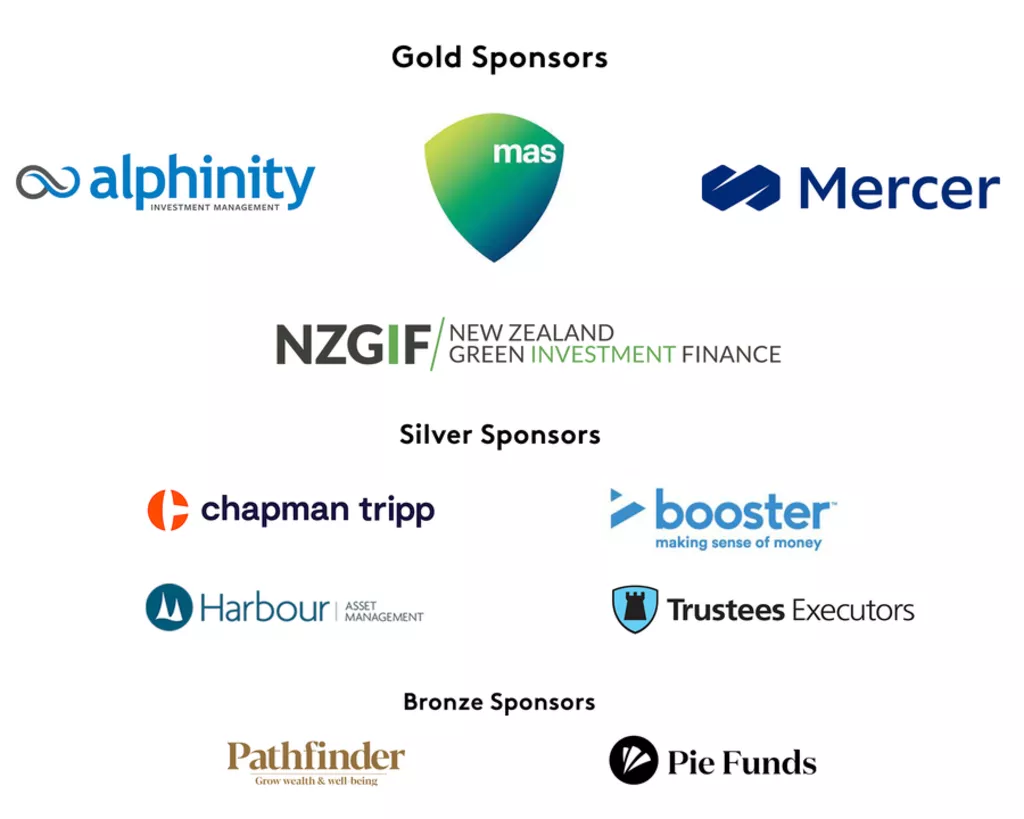Learn More
Money for Good Seminar

Welcome to the third series of Money for Good
Introducing a seminar and podcast series where we cover how money can be used to shape a better world. 🌏
Following our successful seminar series in 2020 and 2021, this series covered a range of issues including climate finance, social housing, animal welfare, nuclear weapons, gender investing, modern slavery and investing with a te Ao Māori worldview.
To make sure you don't miss a seminar - follow Mindful Money on Crowdcast.
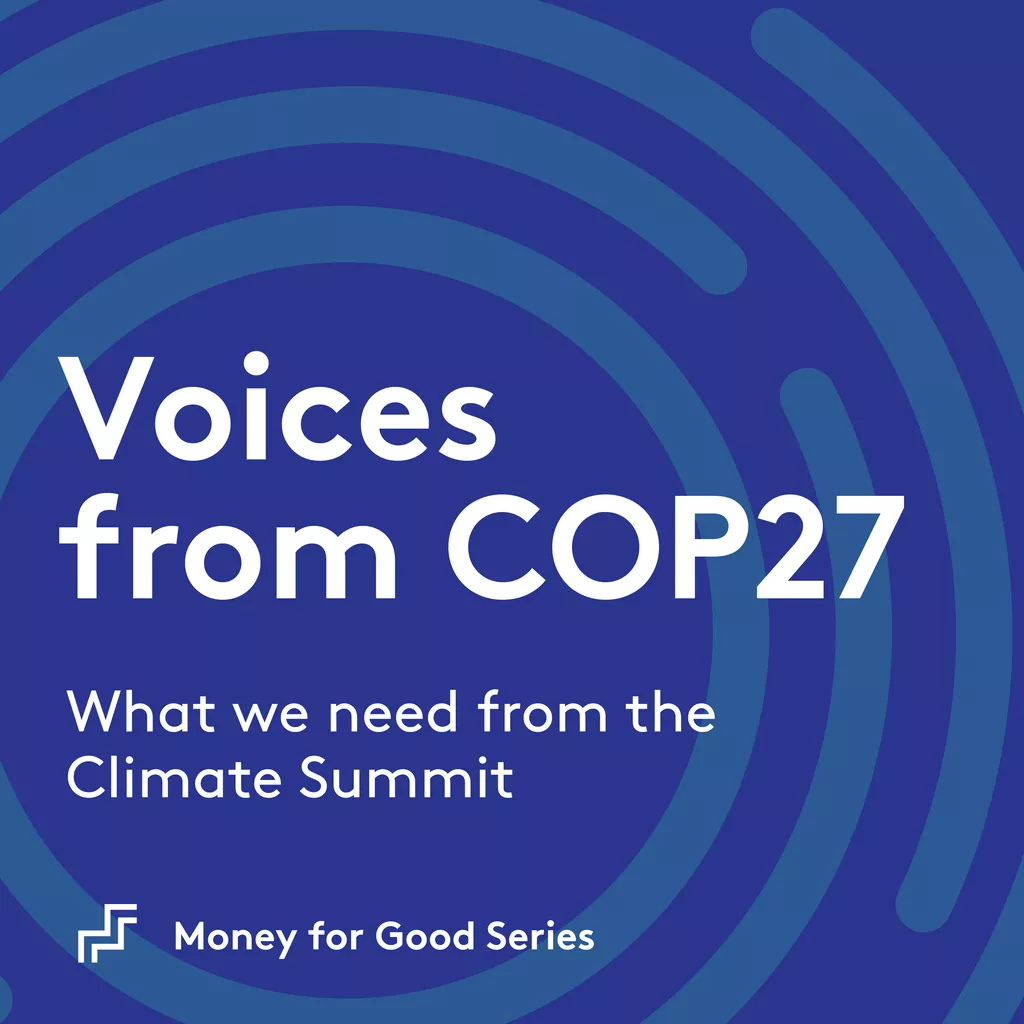
We're kicking off with a discussion centered around COP27 (the annual Climate Summit). Governments are faced with a huge challenge to set the framework for a rapid and fair transition to Net Zero.
However, the messaging on COP27 so far seems to center around lowering our expectations. This is of deep concern, especially at a time when we urgently need government leadership to accelerate climate action.
We have assembled different voices from COP27 to help us understand where real progress can be made. We will be covering climate justice for the Pacific and frontline communities, rules on international emissions trading, and financing for the climate transition.
Join us to hear from those at COP27, including:
Rod Oram, Business Journalist
A representative from the Pacific Climate Warriors
Craig Weise, Chief Executive at New Zealand Green Investment Finance
Rhiannon Mackie, youth environmental advocate
This event will be hosted by Barry Coates, founder and CEO of Mindful Money
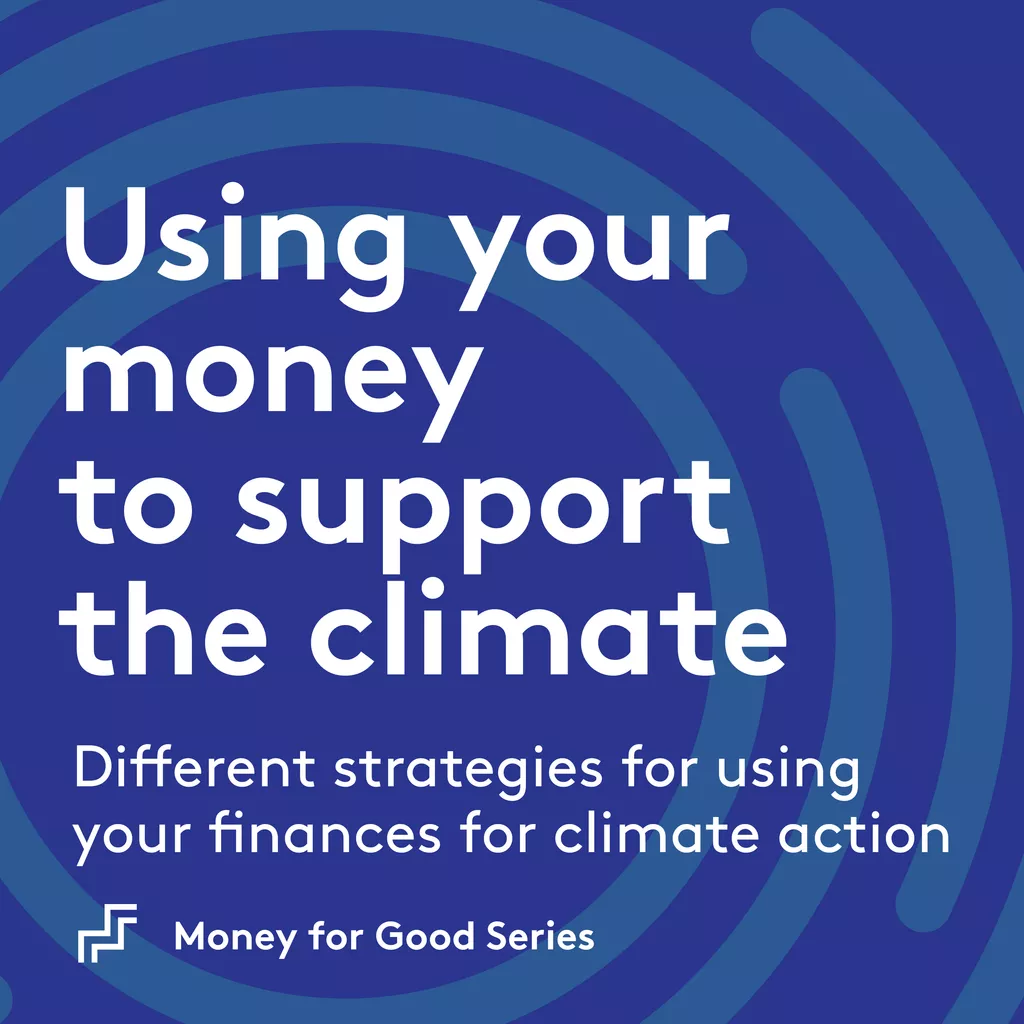
Your KiwiSaver fund could be the largest polluter in your personal carbon footprint.
Your KiwiSaver invests mainly in companies, and they have very different impacts on the climate. Our latest research shows that your KiwiSaver could be the largest polluter in your personal carbon footprint, at 2.3 tonnes per year.
Join us to learn how to use your money to help the climate (while still making good returns!). We will be covering the different ways you can use your money to reduce emissions and fund climate solutions.
We'll be talking with
🎙️Sir. Jonathon Porrit, Co-Founder of Forum for the Future and writer of the best-selling book Hope in Hell
🎙️Dr. Sebastian Gehricke, Senior Lecturer in Finance at the Otago Business School
🎙️Rohan McMahon, from the Climate Venture Capital Fund on climate solutions
🎙️ Leah Keys, Investment Analyst at Mercer
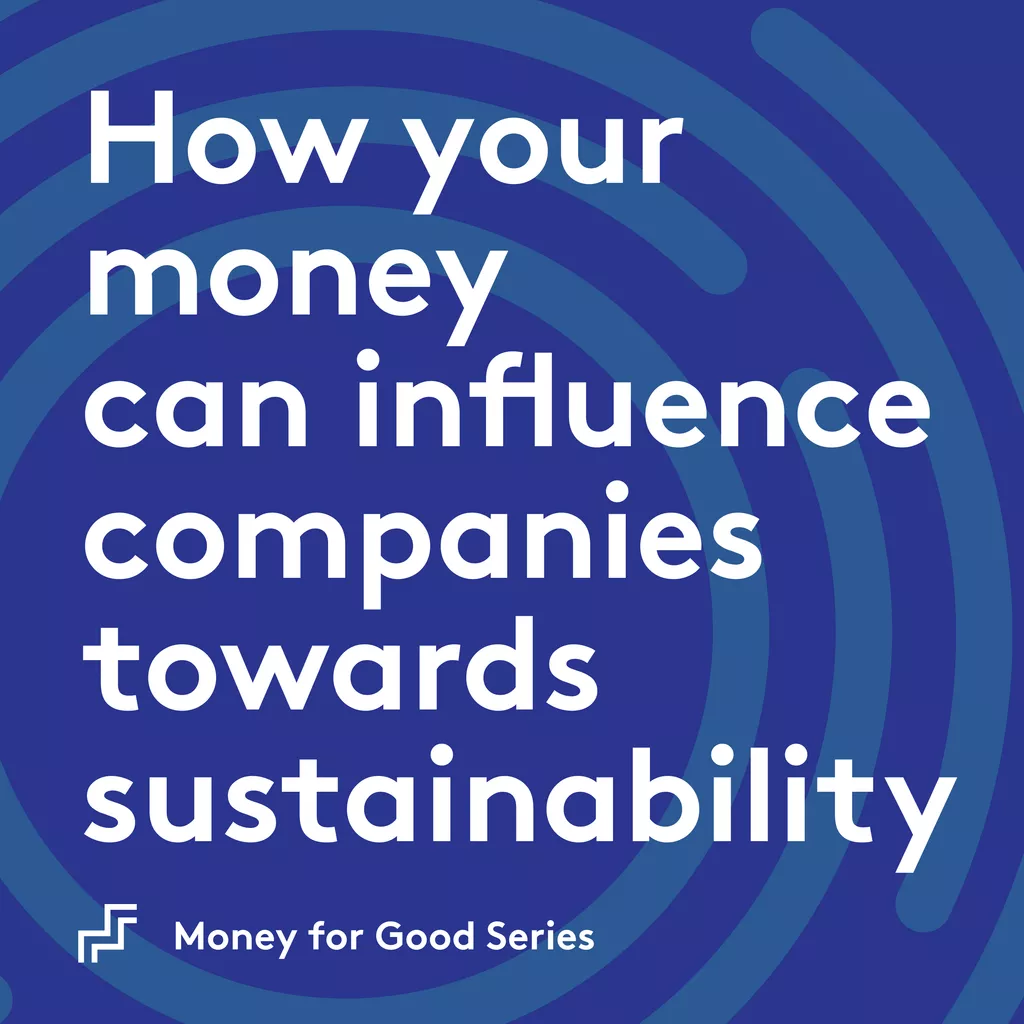
When your KiwiSaver or investment fund uses your money for equity investments they buy shares in the company. That makes them a part owner of the company and gives them the power to vote their shares at Annual General Meetings. It also opens the door to influence company management and Boards through meetings and other forms of engagement. When this is done at a large scale it can influence companies by changing their policies or their Directors. More fund providers are now recognising they have a responsibility to influence companies towards higher social and environmental standards.
Most individual investors are not provided with the information to be able to understand how this works, and whether the change is real. New Zealand fund providers now have a Stewardship Code to guide good practice, and some experience of how engagement can be effective.
In this seminar, we will take a deep dive into this engagement or ‘stewardship’ process, to understand it from the perspective of the fund provider and the company.
Join us next Wednesday 14th of December at lunchtime (12.15pm).
We'll be talking with:
🎙️ Frances Blundell – Chief Legal & ESG Officer at KMD.
Frances is responsible for leading the Environmental, Social and Governance (“ESG”) strategies and initiatives for Kathmandu, Rip Curl and Oboz
🎙️ Jorge Waayman - ESG programme manager at Harbour Asset Management
Jorge manages Harbour’s ESG programme including research and implementation. This involves coordinating policies, engagement and proxy voting activity across investments and participating in wider industry collaboration.
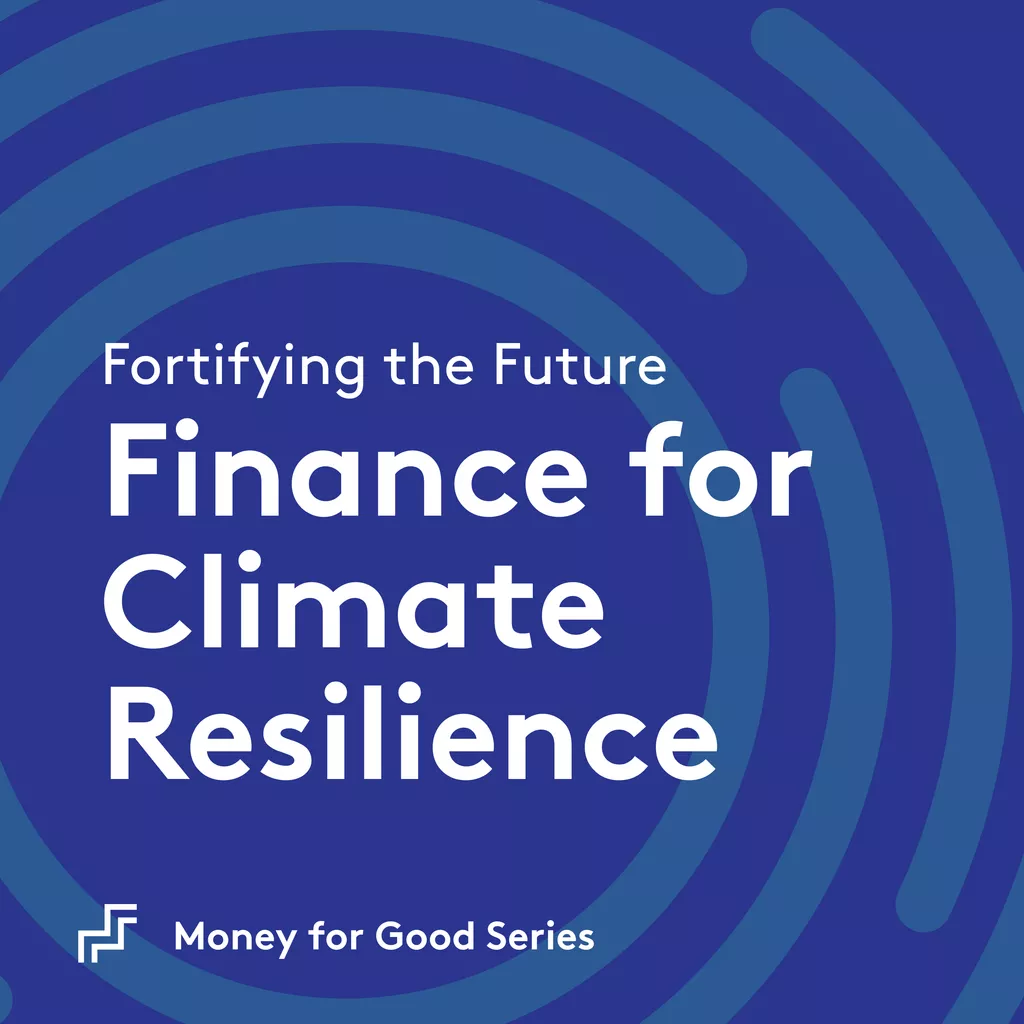
Climate change is having a devastating impact on New Zealand and the world, causing costly damage and causing suffering to communities. As the situation worsens, it's becoming increasingly important to invest in infrastructure that can withstand the extreme weather conditions caused by climate change. This is not only important for the government, but also for investors who want to ensure the long-term sustainability of their investments and contribute to greater resilience.
Join us for an engaging panel discussion on how we can mobilise investment to fund climate-resilient infrastructure. We will be joined by Dr. David Hall, who will share insights from his new report on investment in climate resilience.
He will also be joined by Professor James Renwick, a leading New Zealand and IPCC climate researcher, who will outline the severe climate risks facing New Zealand households, infrastructure and businesses.
Don't miss this opportunity to learn more about this critical issue and explore ways investors can take action.
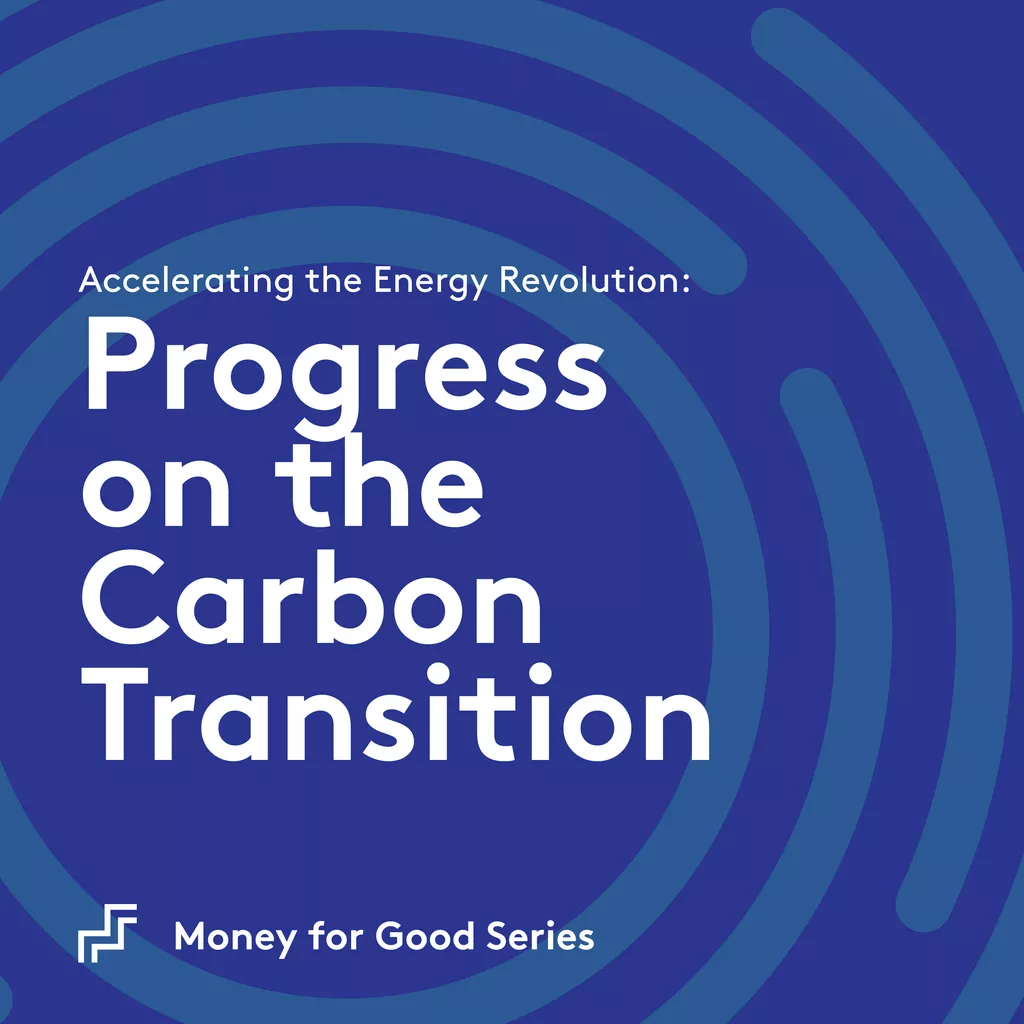
A core issue for investors is the transition from fossil fuels to renewable energy. The financial risks of this transition were outlined by the research think tank, CarbonAction Tracker in 2011 in their report ‘Unburnable Carbon’. Their projections were hugely influential, including introducing the term ‘stranded assets’ to describe the infrastructure that becomes worthless as the fossil fuel sector declines, and highlighting the associated financial risks.
Mark Campanale, the founder and CEO of Carbon Tracker Initiative has contributed a video to provide an update on their latest research. The findings will be discussed by our investment panel including David Lewis, founder of Novus Consulting and previously deputy Chief Investment Officer at Milford Asset Management.

There are a growing number of New Zealand companies that have a business purpose beyond profit maximisation. Corporate social responsibility and stakeholder interests are part of business practices, along with mission statements to make companies a force for good.
- Qiulae Wong, Aotearoa NZ manager for B-Lab AANZ
- Nick Stewart, CEO of Stewart Group, a financial advisory firm with B-Corps certification
- Jules Riley, Senior Growth Manager for Investment Funds at Medical Assurance Society (MAS)
Our featured panelists shared their experiences as financial businesses who have integrated corporate responsibility into their operations. Discussing important topics such as what is happening in the sector, the opportunities of adopting corporate responsibility, constraints and barriers, and what role fiduciary duty plays.
If you are curious about corporate responsibility in the financial sector and what it could mean for you as a consumer or a business, this seminar is for you.
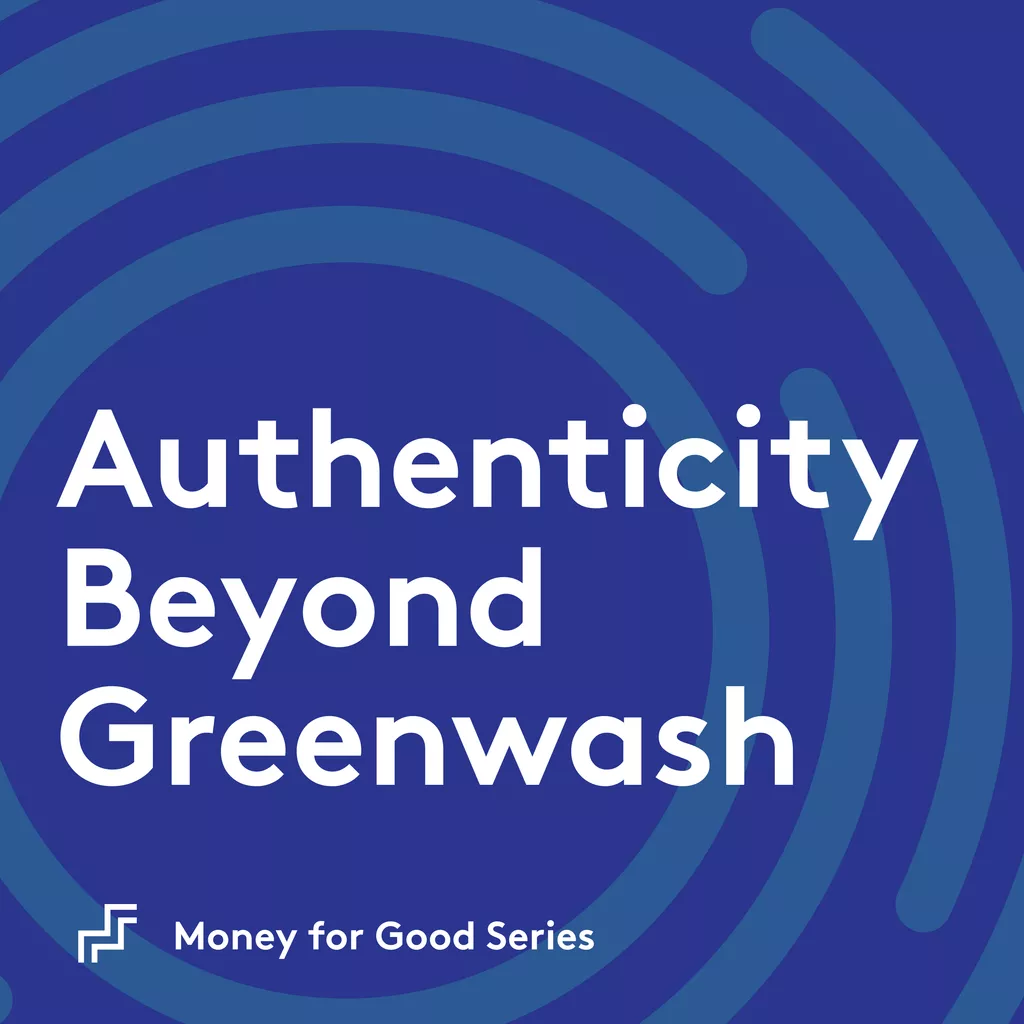
Recent surveys have shown that more than half of Kiwi investors are concerned about misleading claims, exaggeration and greenwash when it comes to investing.
With no common standards or measures used by investment providers, it can be difficult to know what to believe.
In this seminar, we will address these concerns and provide insights on how you can find funds that meet their specific needs and aspirations. We will discuss the importance of due diligence and how to identify funds that align with your personal values and investment goals.
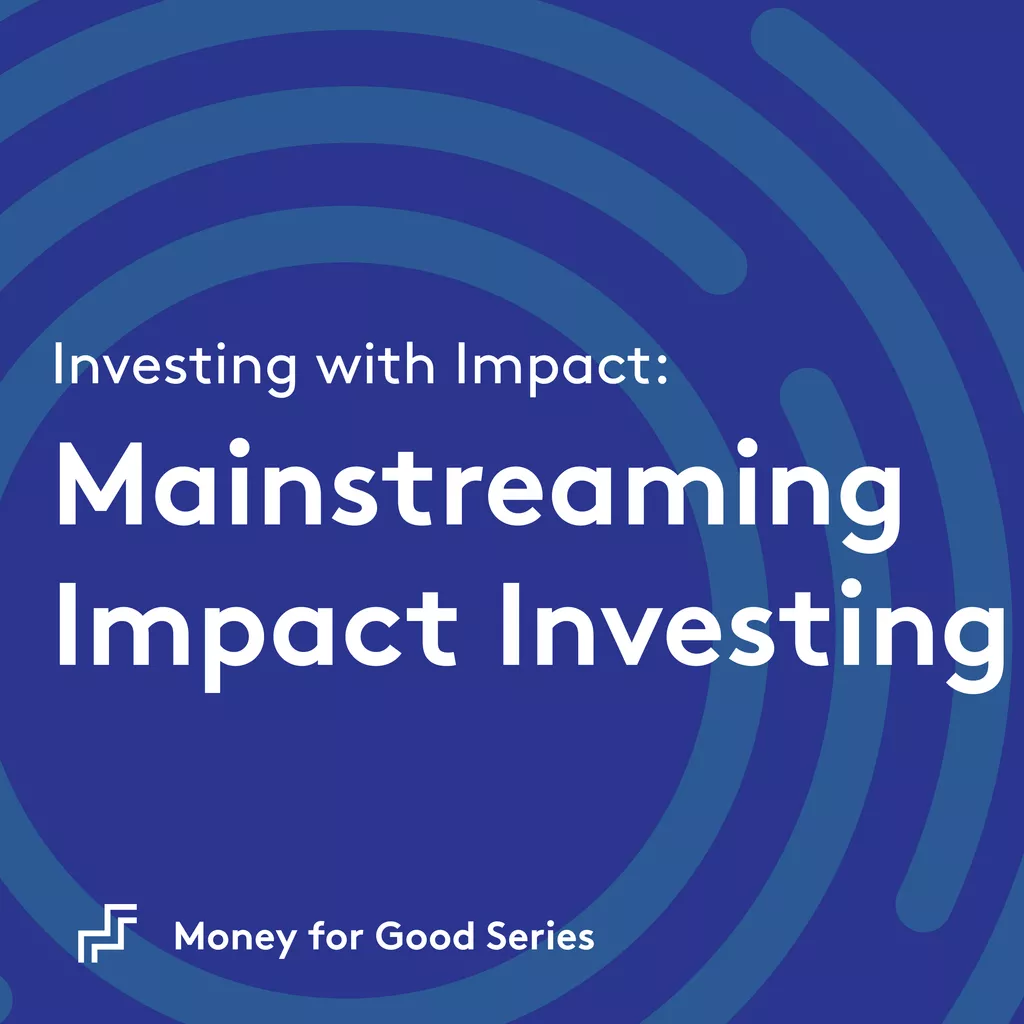
Explore the evolving landscape of positive impact within KiwiSaver and Managed funds, where financial returns are integrated with social and environmental progress. Recently, new funds have been introduced, enabling the public to invest in companies promoting positive change in areas such as social housing, renewable energy, and clean technology.
Join us for a seminar that delves into various approaches to impact investing while discussing the opportunities and challenges of expanding this significant financial movement.
Our expert panellists include:
• Melissa Yiannoutsos: Fund Manager at Booster NZ
• Simon Pannett: Senior Analyst at Harbour Asset Management
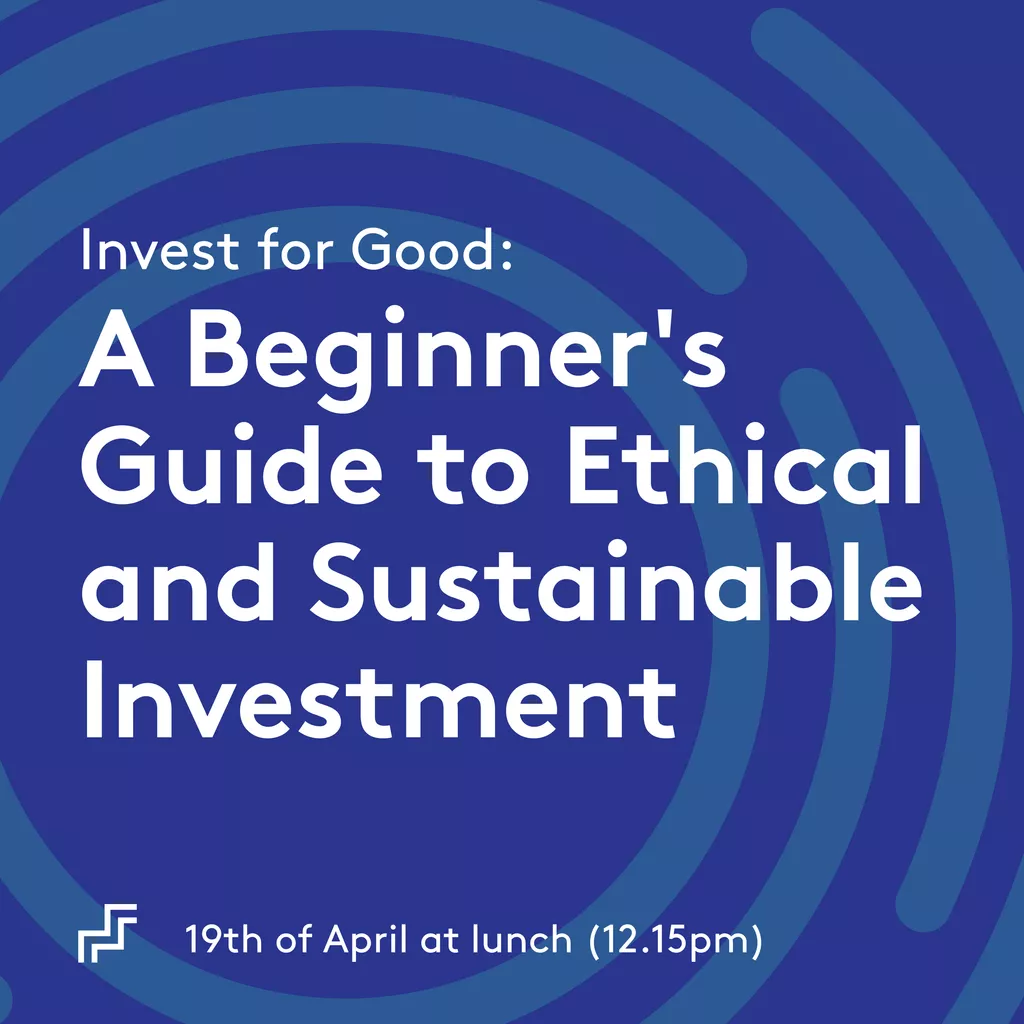
Discover how to invest responsibly and use your money to make a positive difference in the world while still achieving your financial goals.
In this seminar, we'll break down the basics of ethical investing and answer common questions, so you can make confident decisions about where to invest your money.
- Ethical Investing Basics: Understand what ethical investing is, why it matters, and the different ways it can be applied.
- Checking Your Investments: Learn how to find out where your money is invested and decide if it aligns with your values.
- Choosing the Right Fund: Discover how to pick a fund that matches your ethical priorities and financial goals.
- Avoiding Greenwash: How to ensure that your fund is walking the talk on ethical investment
- Q&A Session: Ask our founder and CEO any questions you have about ethical investing, and get simple, straightforward answers.
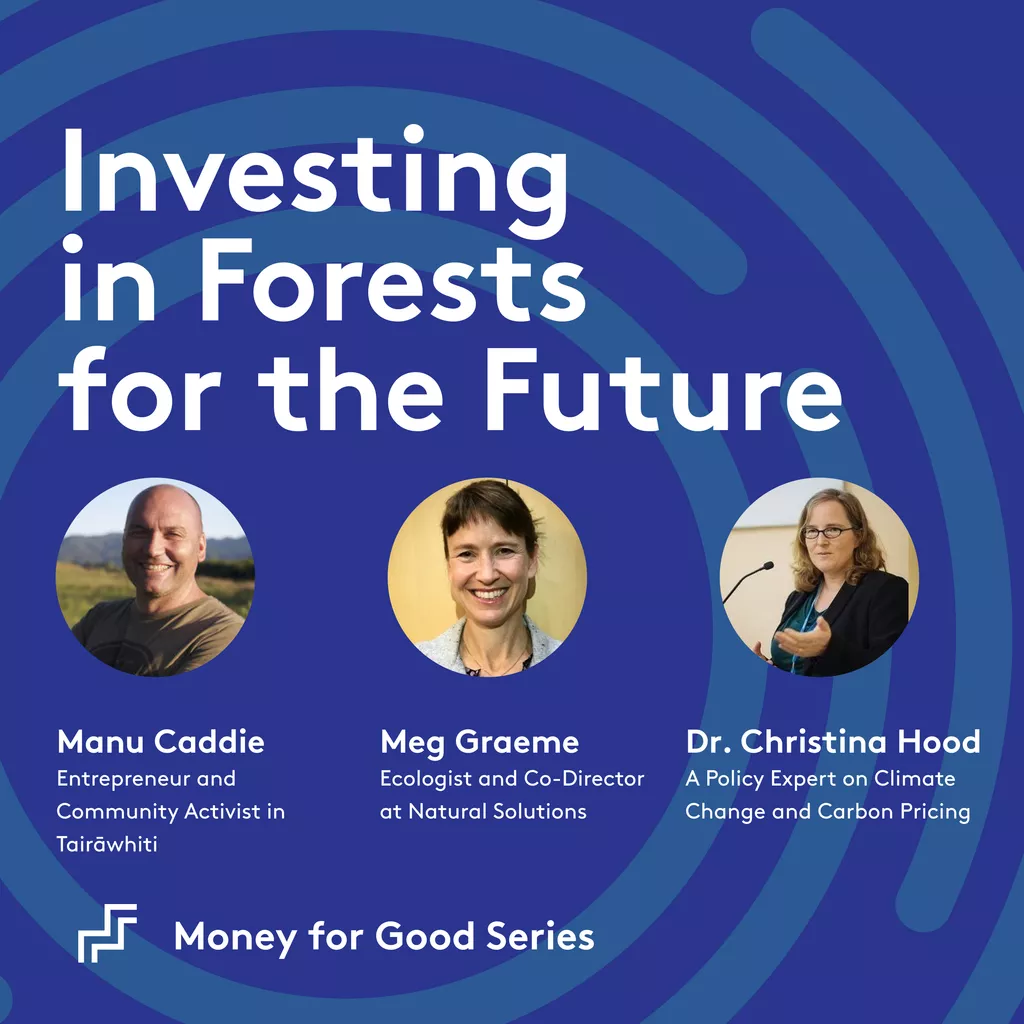
Forests play a major role in our economy, society and ecology.
This seminar will look at the urgent questions facing forest management including the increase in exotic plantations driven by the Emissions Trading Scheme, the damage from slash and loss of soil during flooding, and the growing interest in native forest regeneration.
The panel comprises of:
- Manu Caddie, entrepreneur and community activist in Tairāwhiti
- Meg Graeme, ecologist and co-Director at Natural Solutions
- Dr. Christina Hood, a policy expert on climate change and carbon pricing.
WATCH NOW
A Big Thanks to Our Sponsors:
